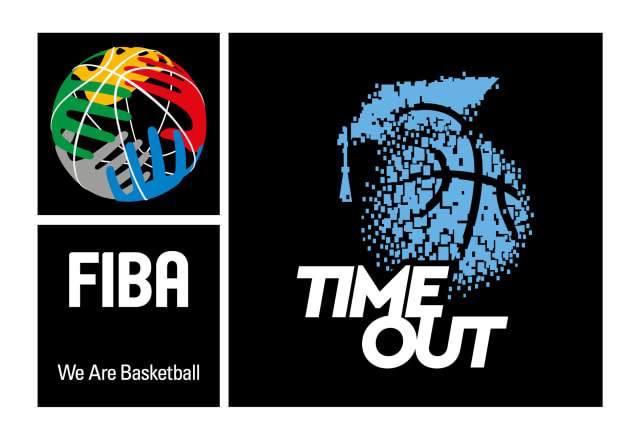TIME-OUT participants put finishing touches on course work ahead of Friday's graduation at FIBA headquarters
MIES - The House of Basketball is preparing to host a one-of-a-kind event on Friday, when it will serve as the backdrop for the Graduation Ceremony of participants in FIBA Europe's TIME-OUT project
MIES - The House of Basketball is preparing to host a one-of-a-kind event on Friday, when it will serve as the backdrop for the Graduation Ceremony of participants in FIBA Europe's TIME-OUT project.
A total of 75 students are set to graduate from courses including Leadership and Management (from Northumbria University), Talented Athlete Lifestyle Support (TALS) from the Talented Athlete Scholarship Scheme (TASS) and the FIBA Manager Qualification.
On hand to award the graduates their certificates will be: FIBA Europe President and FIBA Vice-President Turgay Demirel; FIBA Executive Director Europe Kamil Novak; TIME-OUT Board Chairman Asterios Zois; Professor Fraser McLeay and Doctor Edita Petrylaite representing Northumbria University; and TASS Athlete Administrator Lynda Dunn.
Also present will be representatives of a number of partners that made it possible for the TIME-OUT project to reach a successful conclusion. These include the national federations of Bulgaria, Czech Republic, Latvia and Slovenia, who kindly hosted workshops and were involved in the program; FIBA's Foundation (IBF), which is central to the participation of FIBA and its regions in any program concerning itself with education; the University of Physical Education in Budapest, which served as the research partner of the program.
The graduation ceremony will mark the culmination of a 14-month long education project that began as a one-off program at FIBA Women's EuroBasket 2017, when FIBA Europe and its national federations launched the TIME-OUT initiative to assist elite basketball players at the end of their playing careers across Europe make the transition from sport into work.
This came on the back of recommendations by the European Commission on dual careers and the reintegration of professional sportspersons into the labor market.


FIBA Europe's TIME-OUT project was made possible thanks to co-funding provided by the European Union's Erasmus+
The TIME-OUT project came into being in early 2017, when European national federations nominated one female and one male player each to reflect the parity of basketball.
Prior to embarking on their chosen curriculum, all players had to get their English up to a certain level.
The courses were made to suit the players and their prior level of university education. For example, those that read Northumbria University’s Leadership and Management course were split into two groups: ones who had experience of higher education and those who had none.
The courses they enrolled in provided them with great diversity and flexibility.
The Leadership and Management course from Northumbria University was a combination of workshops in the summer and online classes in the winter, while the FIBA Manager Qualification was based around webinars and education materials (on matters such as event management and finance).
Both courses have prepared the participants for the kind of work that would see them empower basketball in their own countries, by working for their national federations, or other basketball entities. However, the skills they acquired can even see them apply these in other sports and wider afield.
The TALS course, meanwhile, has focused on preparing these elite athletes so that they can mentor future generations and be role models for them. As such, it taught them how to talk and work with under-aged athletes, how to present themselves to and be understood by a younger generation. This means the participants who took the course can envision having careers as tutors, mentors and sports ambassadors.
The students have one thing in common in the fact that all of them will receive a certificate for having successfully gone through the FIBA Manager Qualification.
Before they graduate, the students must present their project work to specialized panel of experts, consisting predominantly of FIBA staff and external specialists. Each student will have 30 minutes in which to present their project.
It is expected that 15 of the students who took part in the higher-level Leadership and Management course will look to carry on and pursue masters degrees from Northumbria University.
Radmila Turner, FIBA Europe National Federations & Sport/Youth & Anti-Doping Manager, said: "We wish to congratulate the students who will graduate on Friday. This first group - and we believe it to be the first of many - is very important as they will show what and where the opportunities for players are out there. We don't want this to be a one-off and that's why we have worked with these players, by picking their brains, to get a sense of what they have to say, where they will go in order to pass this information and feedback on. Their own experience is crucial in helping us shape the best possible program for future generations."
Elisabeth Cebrian-Scheurer, FIBA Europe National Federations & Sports/Special Projects, said: "This project is very important as it fills a huge need we have for a program dedicated to players' development for their professional life after their playing career. Based on the number of players - and the names of some of these - who expressed interest, we became very aware of the need for this initiative. Our involvement with these players and graduates does not end here. We know their strengths and so we will be sure to communicate these to their national federations and leagues so that they are used to their advantage."
FIBA